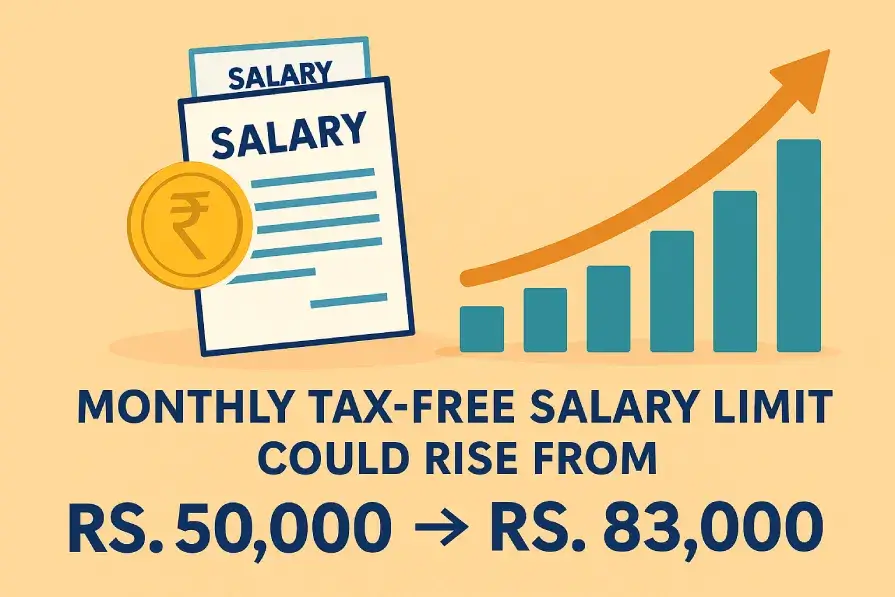Govt Plans New Taxes on Freelancers and YouTubers to Raise Rs. 600 Billion

In the next fiscal year’s budget, the Pakistani government plans to propose new taxes affecting digital workers. Freelancers, YouTubers, vloggers, and other individuals who make money on the internet will be included in a new tax plan meant to collect Rs. 500–600 billion, reports say. Such measures form a broader step to include more people in taxation, organize the digital economy and help the Federal Board of Revenue meet their tax goals.
Why Freelancers and YouTubers Are Being Taxed in Pakistan
FBR has suggested that it seek a 16–18% rise in tax collection for FY2025–26. Growth of approximately 12% in this year’s collection, which is estimated at Rs. 14.1–14.3 trillion, is expected to be from natural economic sources.
- Projected 3.6% growth in GDP
- According to estimates, inflation has reached 7.7% this year.
The revenue also comes from new taxes, such as levies on income.
- Freelancers
- YouTubers
- Vloggers
- Digital service providers
For the first time, this effort is structured to bring Pakistan’s gig economy under formal tax rules.
Key Tax Measures Expected
Since the complete information will be shared at the budget reading, currently, experts anticipate the following modifications:
- A 3.5% flat tax is applied to income from services on YouTube, TikTok, and sites like Upwork and Fiverr
- Everybody who earns online must be registered with the NTN.
- Tougher regulation over foreign money transfers and payment portals
All attempts are made to ensure these steps make information available and include all economic sectors in helping to develop the nation.
How Will This Impact Freelancers in Pakistan?
For people working independently, this could have a huge effect. Now, a lot of individuals receive tax-free income, but the new rules will require them to:
- Broadcast your gains by using the proper services
- Keep track of what you earn and where you spend money
- Advance tax might be paid in installments if your income falls within certain categories
By following these rules, the government might raise the costs of compliance and cut income earned after deductions if not handled efficiently.
Benefits:
- As a result of registration, you have better access to loans and support services
- Protecting the different streams of income.
Challenges:
- People tend to know little about taxation laws.
- Many digital laborers lack the correct systems for generating or managing their invoices and accounts.
Reactions from the Digital Community
The way online communities and digital entrepreneurs respond is a mix of views.
Of course, we believe in paying taxes, just as long as there is clear support, training, and fair rules for everyone.
Others worry that if taxation exists without any support, it may discourage young people and students who live far from major cities to begin a career as freelancers.
Many experts recommend that the government encourage awareness, simplify the filing process, and motivate new applicants with incentives.
Broader Tax Strategy and IMF Commitments
The government’s decision to tax YouTubers and freelancers is understood as an effort to meet IMF requests for tax reform.
International regulations on tech are getting tougher. Trump’s suggested tariff on Apple iPhones signals that countries want global companies to shift their production and increase their tax contributions.
Topline Securities forecasts that taxing digital incomes could bring in up to Rs. 52.5 billion directly from digital earners.
This practice is also considered best practice by the IMF.
- Enhancing tax to GDP ratio
- Switching away from indirect tax-based revenue.
FAQs About Freelancer Taxation in Pakistan 2025
Q: Will freelancers have to pay income tax in 2025?
A: Yes. Those who use digital platforms to earn as freelancers will soon face income tax.
Q: What is the expected tax rate for digital earners?
A: People are debating a 3.5% flat tax.
Q: Will foreign income be taxed?
A: All income sent to Pakistan via approved methods is reviewed and may be subject to tax.
Q: Do I need an NTN to work as a freelancer now?
A: If this happens, you will probably have to create an NTN by law.
Final Thoughts: Taxing Creators Without Crippling Creativity
The workforce in Pakistan’s digital sector is made up of young people, is easy to move, and is increasing rapidly. When freelancers and YouTubers are taxed, more money is added to the national budget, and the economy becomes more official—as long as the process is fair.
Learn about the Top Pakistani Startups in 2025 to find out how Pakistani innovation supports digital startups.
It is important for the government to balance planning finances with ideas that help grow entrepreneurship. Properly carrying out this policy could transform Pakistan into a center for controlled digital advancement in South Asia.









